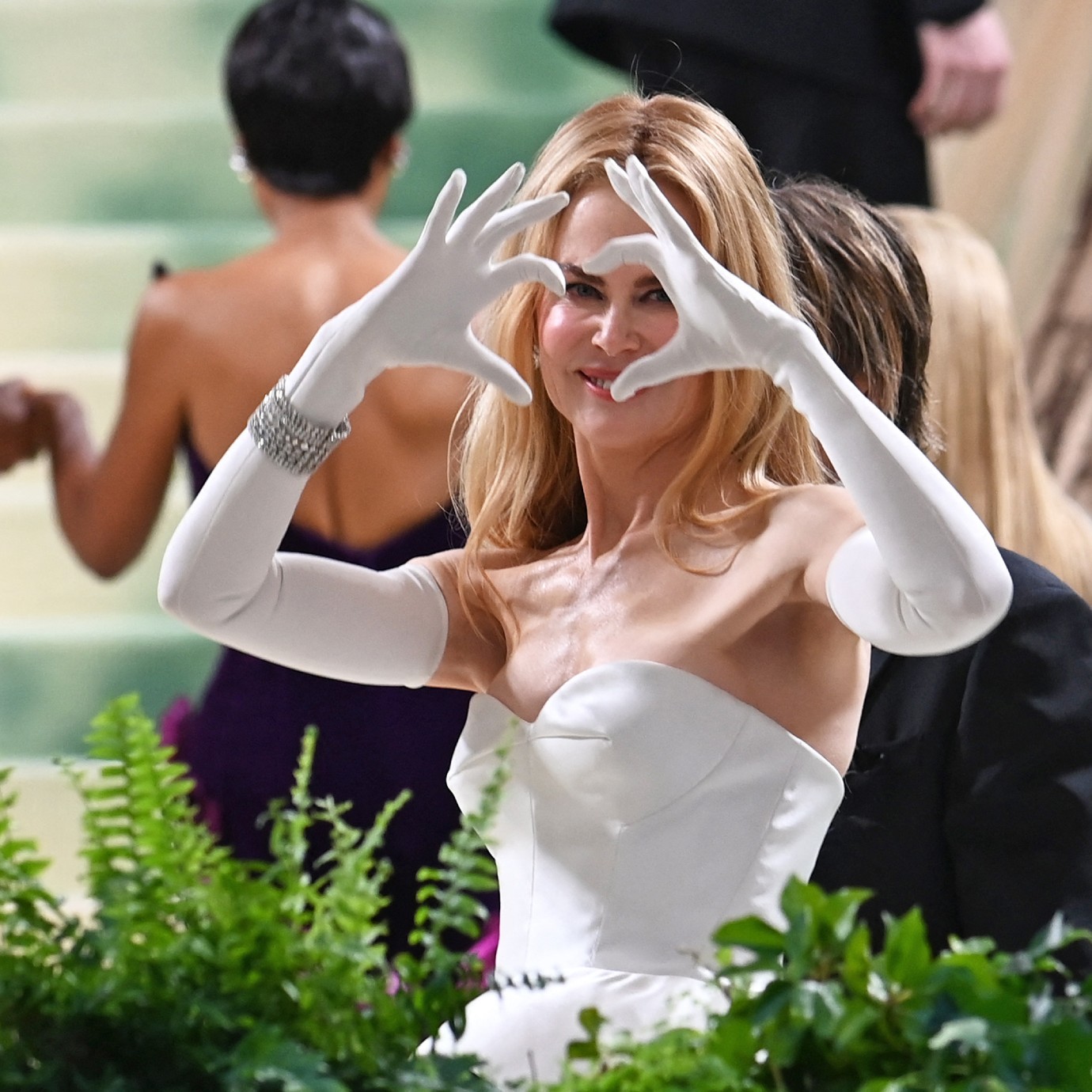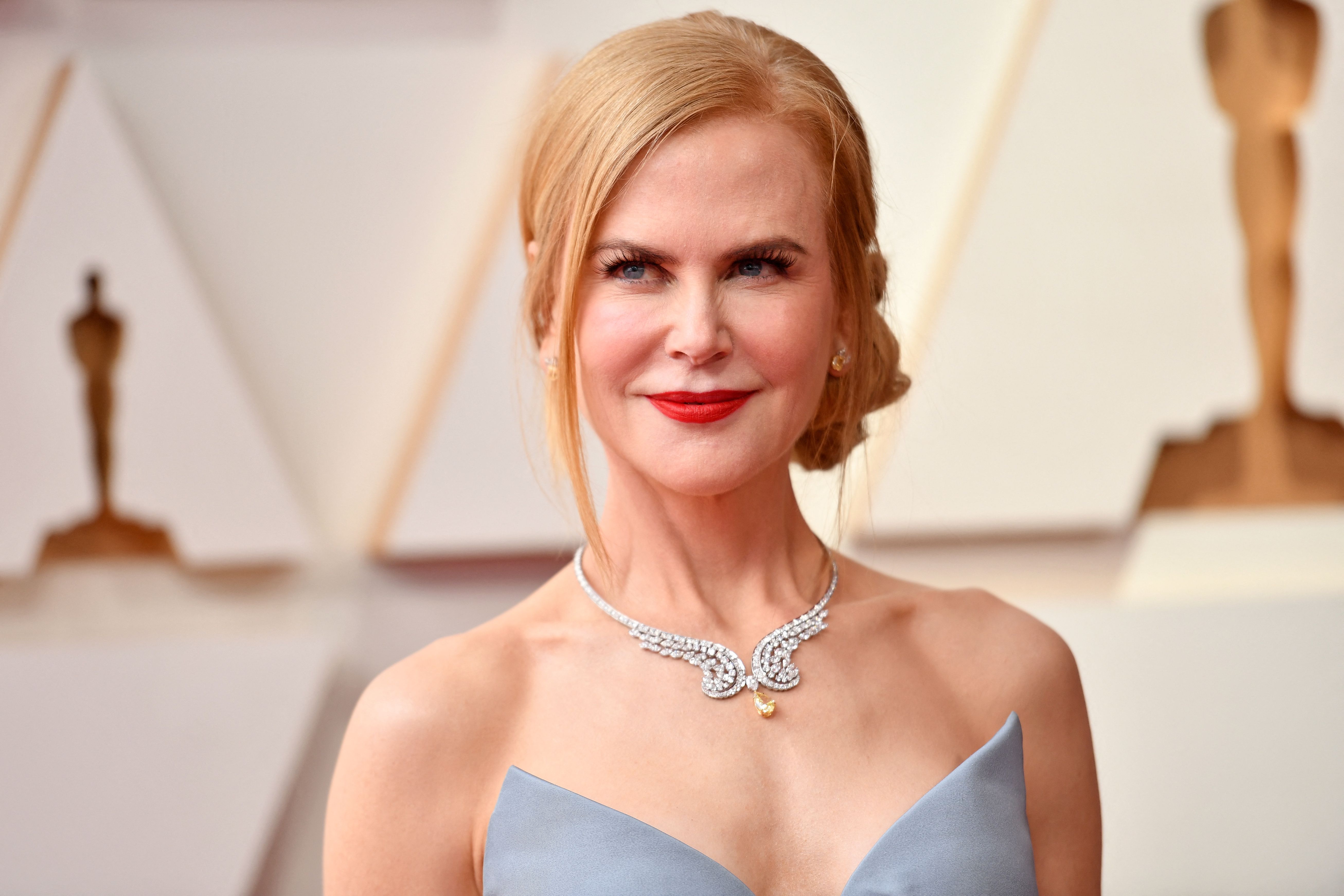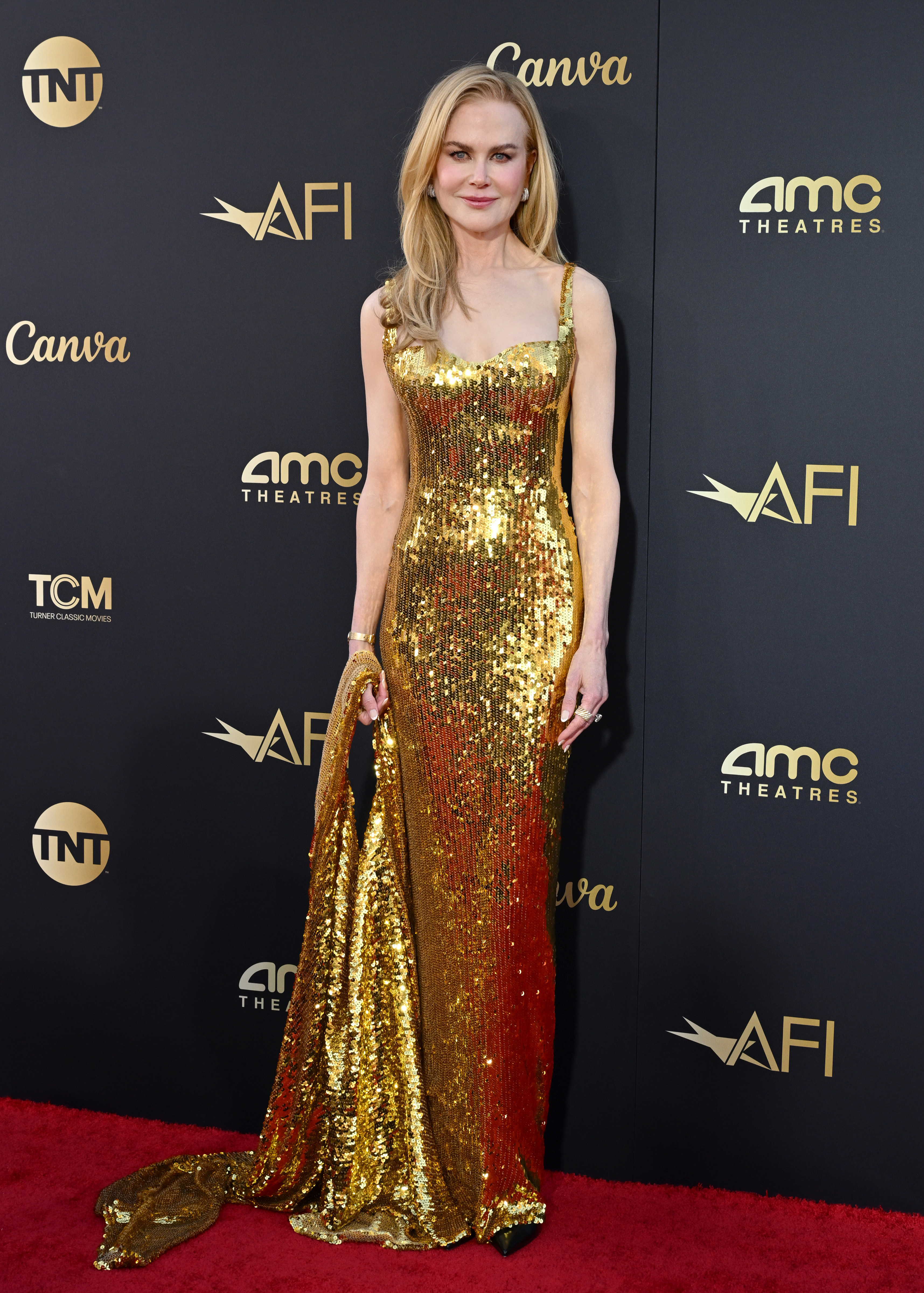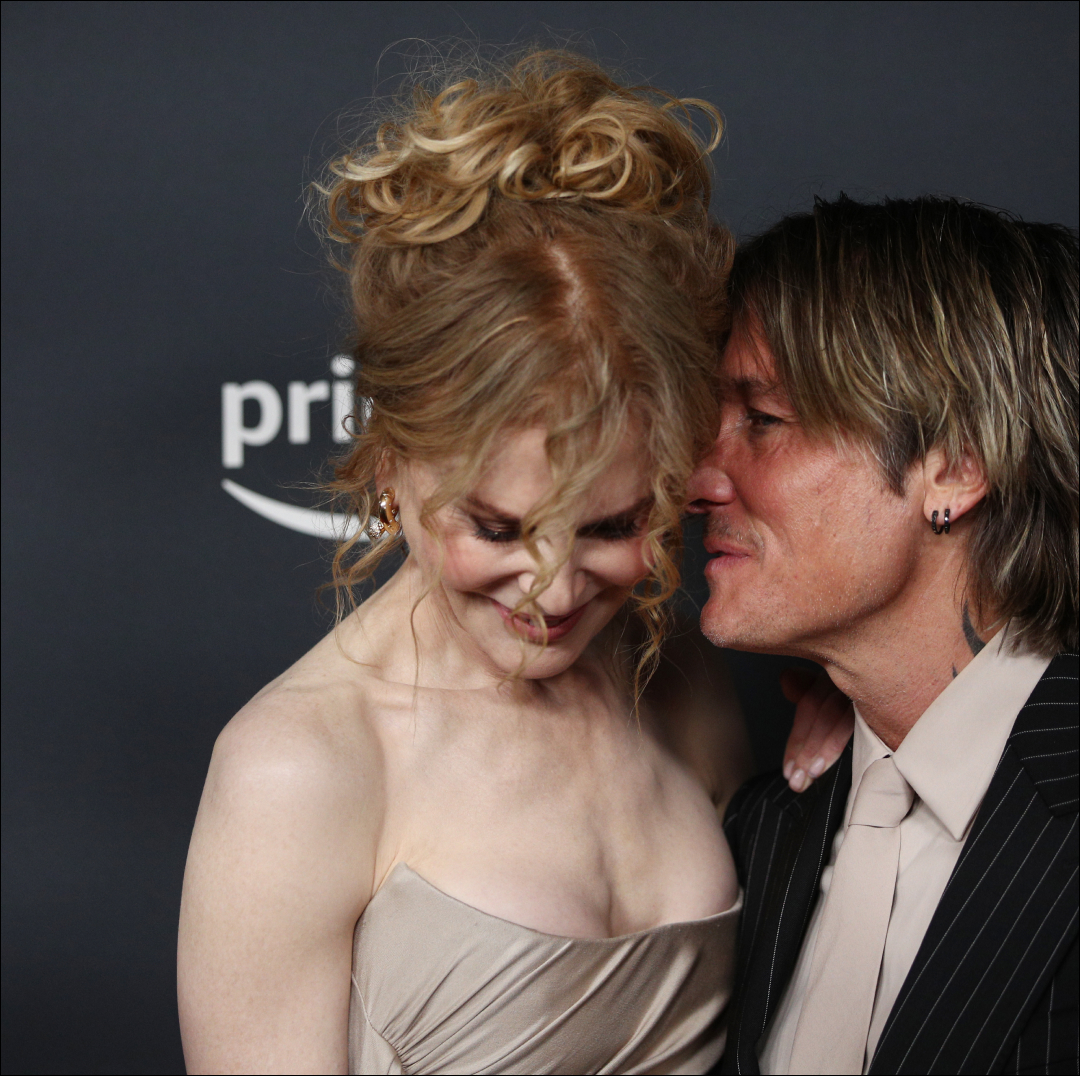
Netflix just dropped a very steamy trailer for its upcoming romantic comedy film A Family Affair, featuring Nicole Kidman and Zac Efron kissing with aplomb. Coincidentally (or not) Kidman said in a roundtable discussion with The Hollywood Reporter that she has, in fact, secretly been excited to make out with certain co-stars—though she didn’t name any specifically. (Dammit.)

Kidman spoke about onscreen chemistry at the roundtable alongside fellow actresses Jennifer Aniston, Naomi Watts, Sofia Vergara, Brie Larson, Jodie Foster, and Anna Sawai, per People. Fellow actress Anne Hathaway wasn’t there, but she was referenced, specifically recent comments she made about being less than enthused to kiss a number of men in just one day for an onscreen chemistry test back in the aughts. Kidman said she could relate, though she did admit “I think maybe secretly I’ve been excited” about kissing certain co-stars, she said, laughing.

Kidman added that, in her opinion, chemistry tests shouldn’t be the No. 1 defining factor during auditions: “You can not have chemistry [in the audition], and onscreen, it’s made,” she said. “There’s a way you can shoot things. I think just relying on chemistry is lazy. There’s the writing. There’s the interaction. You can literally be directed through it.”
For what it’s worth, A Family Affair isn’t the first time Kidman has made out with Efron; they played lovers in 2012’s The Paperboy, as well. Efron said he was nervous working with the Oscar winner 12 years ago, and was similarly nervous on the set of A Family Affair, he told People: “I was still a bit apprehensive, but reuniting with Nicole is always so great,” he said. “And as talented as she is as an actress, she is equally kind, caring, and wonderful to spend time with,” adding that their characters’ chemistry in the movie is “seamless, natural, and fun.”

In real life, Kidman has been married for 17 years to husband Keith Urban. In a 2018 interview, Kidman said that the secret to their long-lasting marriage is “knowing that you have to keep contributing to what we call the ‘us,’” she said. “You go, ‘Does this work for us?’ When you make an us, it’s yours together—that’s what you create.”







